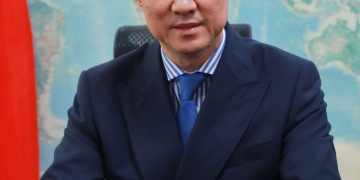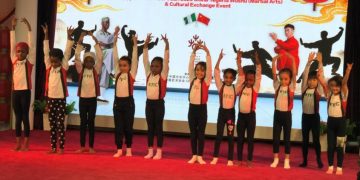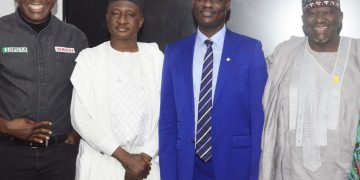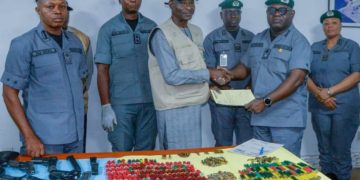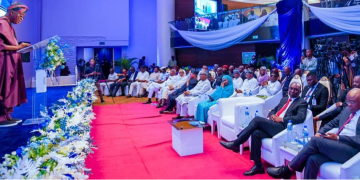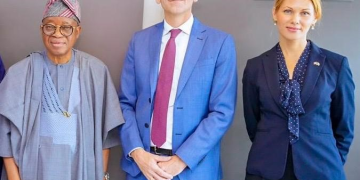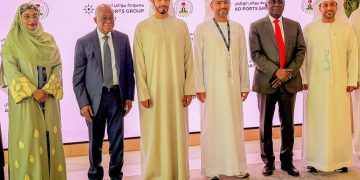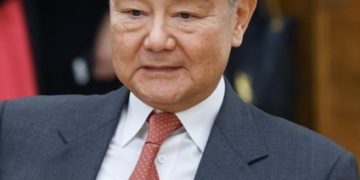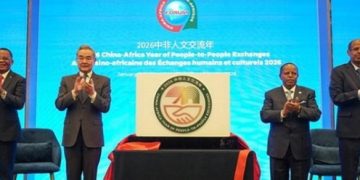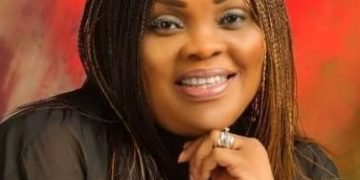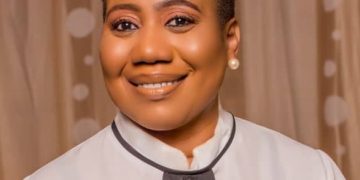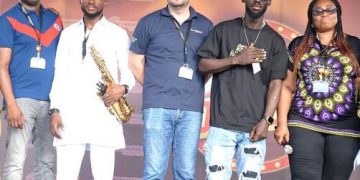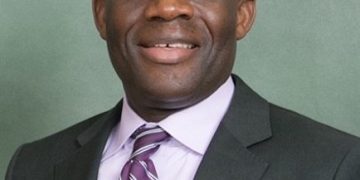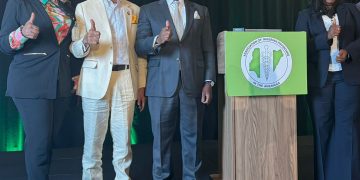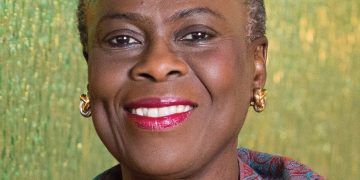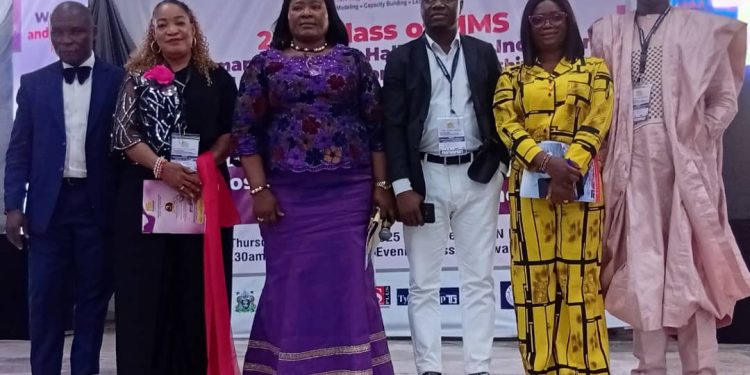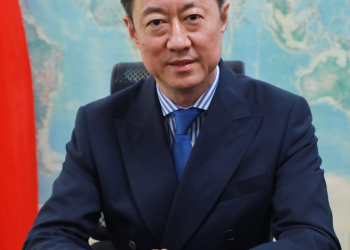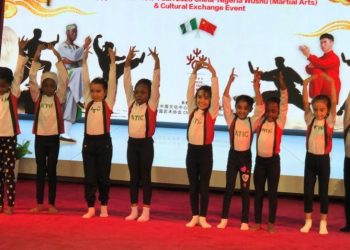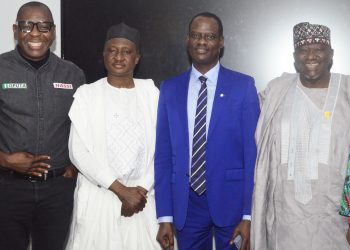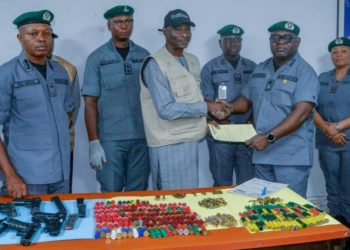By Anthony Nwachukwu
For a balanced leadership and progressive nation, stakeholders at the 2025 MMS Woman of Fortune Hall of Fame (MMS WoFHoF) have called for more recognition and space for the female gender in leadership.
In his welcome address at the 2nd International Women’s Leadership Summit in Abuja on Thursday, the Chief Executive Officer of MMS WoFHoF Initiative, Mr. Kingsley Anaroke, said the theme, “Fostering Sustainability, Women and Leadership with Technologies” was very relevant given the “strings of development in Nigeria and the world at large” today.
He said it was chosen “to promote sustainability in gender diversity, leveraging technology for inclusion across sectors for alternative and informal education, while encouraging the robust participation of northern women in socio-economic cum political developments.
It also “offers a review of the place of women in leadership, how women can scale technologies to change power and government, x-raying workable strategies to influence gender-related policies, and how to leverage technology to improve informal and alternative education for women while empowering them with opportunities for wealth creation to build capacity to remain competitive.”
Adding his voice to the ongoing debate on the expansion of space in leadership for women, Anaroke called for a speedy passage of the Women’s Reserved Seat Bill at the National Assembly, stating that it will correct the imbalance that keeps women out of politics.
He dismissed the argument that more female representation in politics negates meritocracy, stating that such notion “smacks of male chauvinism and gender bigotry.”
Concerned that on 21 (or 4.5 per cent) of the 469 members of Nigeria’s current 10th National Assembly are women, Anaroke stressed that “this political structure is culturally inimical, structurally biased and dangerous to the political health of the nation.
Meanwhile, he emphasised the need for an enduring strategy by a select category of women to properly lead other women to break the jinx of imbalance in women representation in politics, in order to change the course of Nigeria’s political leadership.
According to him, this requires “mentorship, collaboration with men, long and medium term planning, and building capacity.”
However, he noted that achieving this will require courage, timeliness, political insight and collaboration between women and men, adding that the reserved seat bill is not about gender superiority but about men and women working in synergy to shape the nation.
In her keynote speech, Dr. Ifeyinwa Ogbonna-Nwaogu of the Department of Political Science, National Open University of Nigeria (NOUN), stated that women should be taken seriously and listened to, while urging the women to sustain whatever leadership positions they are in by pulling others up.
According to her, “taking women seriously transcends rewards; it transcends accolades for the fact that you stand for who you are, that you speak out against exclusivity, against your being trivialised, or your voices not being heard, or being shut down.”
“Once we stand up for that, women will be taken seriously, and when we are innovators in our business practices, it will swell policies of change, and the end, which is sustainable leadership, will be achieved. For us to get to this stage and sustain this, it is very key that we are creative and resilient.
Lamenting the complicity that has cheapened every aspect of women, Ogbonna-Nwaogu compared the trend to Senator Natasha Akpoti-Uduaghan of Kogi Central District, who she noted to have prevailed by raising her voice against injustice and intimidation.
Against that background, she urged women to challenge what she called “the persistence of patriarchy,” rather than remain adapted to, and enduring it as a system of men and women who have accepted the complicity of operating the way things are.
The don, who stressed the need for women’s voice to be heard, said the essence is “to question the times we have endured what we shouldn’t, when our positions as women have been questioned.
According to her, the trend of not taking women serious, just like sexual harassment, “is political, not cultural,” and deserves to be interrogated because women are intelligent.
Reminding the honourees that they had done something deserving commendation in their communities before the accolades, she stated that the implications include that their actions were being weighed. To remain in the forefront, therefore, they must remember that their inactions have consequences that will equally come to the fore.
Ogbonna-Nwaogu stated that exemplary programmes, including the acknowledgement of persons and institutions that empower women and young girls in their communities, as the MMS WoFHoF Initiative does, should be perpetuated through similar relevant talks or leadership programme.
She noted that sustainability is positive as a reference point to measure whether any practice or policy is worthy of women’s support.
The political science lecturer further challenged the younger women to emulate women who have made a positive difference in the society, including the array of Nigerian women in the tech industry, by studying their motivations, childhood support systems, challenges, resilience and success patterns.
According to her, women who have transcended the limitation of innovating are proving their leadership in the tech sector and have also updated the fact that women, once supported, educated and included, could still innovate.
Nurturing women’s achievements, or whatever goodwill initiatives, requires sustenance, because it creates inclusive pathways, Ogbonna-Nwaogu added.
Meanwhile, some exemplary personalities were inducted into the 2025 MMS WoFHoF, including entrepreneur and human rights advocate, Dr. Stella Iwuagwu, philanthropist and peace advocate, Amb. Nana Aisha Mahmoud, Chancellor, Al-Muhibbah Open University and humanitarian leader, Dr. Aisha Bala Mohammed, and human rights and political advocate, Hannatu Musa Musawa, among others.

